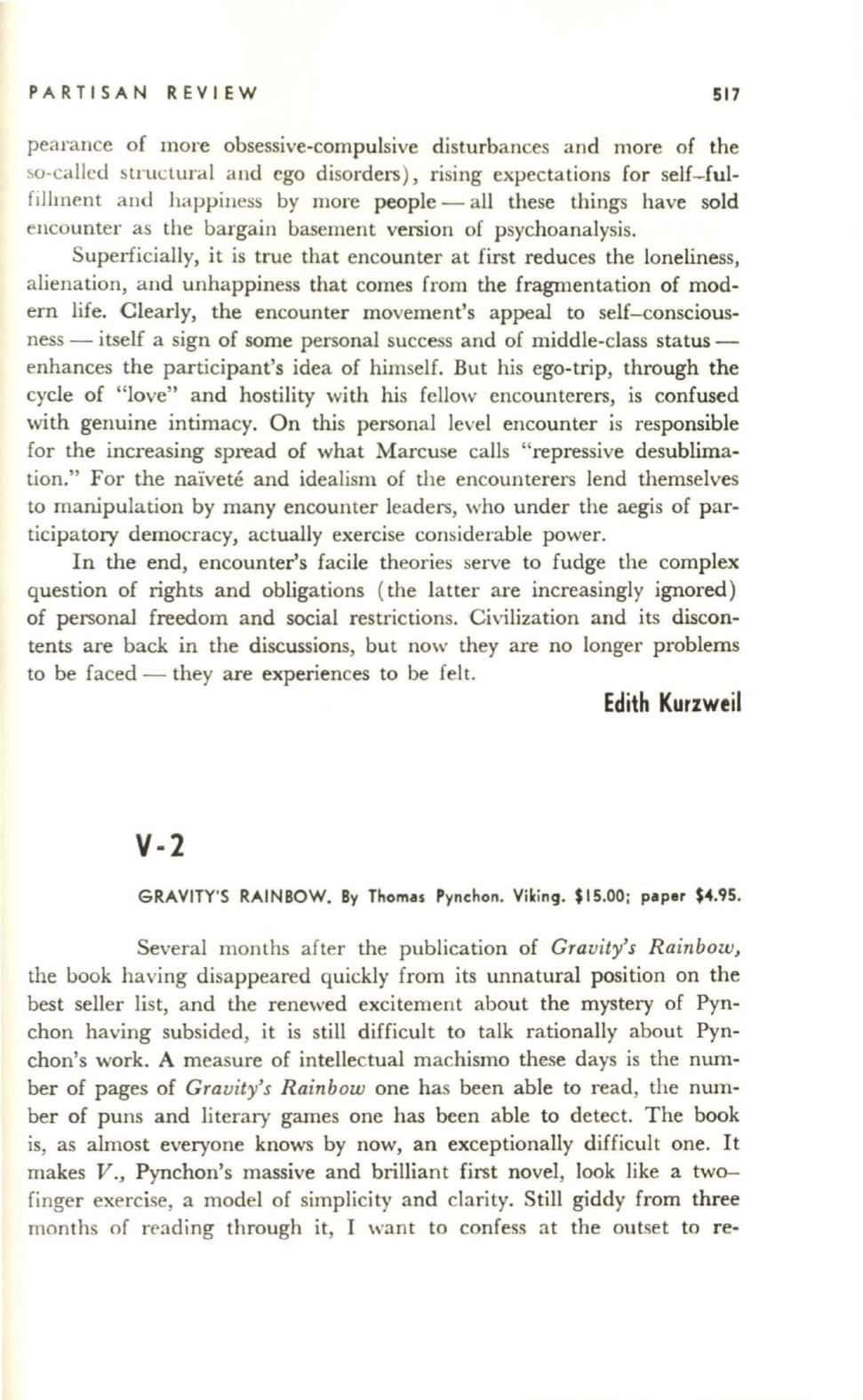
PARTISAN REVIEW
517
pearance of more obsessive-compulsive disturbances and more of the
so-called structural and ego disorders), rising expectations for self-ful–
fillment and happiness by more people - all these things have sold
encounter as the bargain basement version of psychoanalysis.
Superficially, it is true that encounter at first reduces the loneliness,
a lienation, a nd unhappiness that comes from the fragmentation of mod–
ern life. Clearly, the encounter movement's appeal to self-conscious–
ness - itself a sign of some personal success and of middle-class status–
enhances the participant's idea of himself. But his ego-trip, through the
cycle of "love" and hostility with his fellow encounterers, is confused
with genuine intimacy. On this personal level encounter is responsible
for the increasing spread of what Marcuse calls "repressive desublima–
tion." For the naivete and idealism of the encounterers lend themselves
to manipulation by many encounter leaders, who under the aegis of par–
ticipatory democracy, actually exercise considerable power.
In the end, encounter's facile theories serve to fudge the complex
question of rights and obligations ( the latter are increasingly ignored)
of personal freedom and social restrictions. Civilization and its discon–
tents are back in the discussions, but now they are no longer problems
to be faced - they are experiences to be felt.
Edith Kurzweil
V-2
GRAVITY'S RAINBOW.
By
Thomas Pynchon. Viking. $15.00;
paper
$4.95.
Several months after the publication of
Gravity's Rainbow,
the book having disappeared quickly from its unnatural position on the
best seller list, and the renewed excitement about the mystery of Pyn–
chon having subsided, it is still difficult to talk rationally about Pyn–
chon's work. A measure of intellectual machismo these days is the num–
ber of pages of
Gravity's Rainbow
one has been able to read, the num–
ber of puns and literary games one has been able to detect. The book
is, as almost everyone knows by now, an exceptionally difficult one. It
makes
V.,
Pynchon's massive and brilliant first novel, look like a two–
finger exercise, a model of simplicity and clarity. Still giddy from three
months of reading through it, I want to confess at the outset to re-


